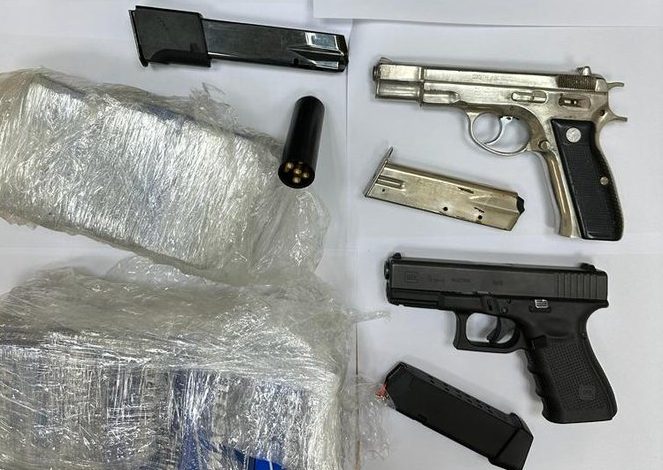Publications
INSS Insight No. 1725, May 21, 2023
Since Israel’s current government was established in later December 2022, the number of homicides in the Arab society has more than doubled compared to the same period the previous year. Given the slowdown in crime and the drop in the number of homicides among Arab citizens recorded last year, it now seems that the government is not prioritizing crime in the Arab sector. If the government does not take immediate action to deal effectively with this severe challenge, which poses a threat to domestic security, the situation is likely to get much worse and could even deteriorate to unprecedented dimensions and threaten national security. A systemic response could take the form of vigorous implementation of preexisting plans: the five-year plan (549) for dealing with violence and crime; the emergency plan known as “Secure Track”; and the five-year plan (550) to deal with the profound socio-economic issues that contribute to violence and crime in the Arab society in Israel. This response must be thoroughly implemented with full collaboration between various government organs, as well as with Arab local authorities and leaders. While there are internal social causes in Arab society for the rise in violence and crime, this article focuses on the ramifications of the current government’s approach to this severe and unfolding challenge.
Since the start of 2023, there has been a dramatic spike in the scale of grievous violence and organized crime in Israel’s Arab society. The number of homicides reached unprecedented levels compared to the same period last year and was higher than any recorded figure in Israel’s history, and the number of homicide victims among Arab citizens of Israel is projected to exceed 200. This contrasts sharply with the 106 homicides in 2022, a year in which, for the first time, there was a 16 percent decline in the number of murder victims – a number that had risen consistently in the preceding years (74 in 2018; 94 in 2019; 100 in 2020; and 115 in 2021).
The steadily increasing number of homicides (expected to spiral exponentially) has profound psychological and social effects on Arab society. The most severe of these is the loss of personal security for Arab citizens, which has direct implications for their daily lives and for their trust in the state and its institutions, creating a sense that they have been abandoned by a state that is oblivious to their basic needs.
It appears that there are numerous causes for the dramatic spike in the number of homicides and the heightened crime and violence. Ironically, among them is the pressure exerted in 2022 on the crime families by effective coercive measures of law enforcement agencies, as part of the “Secure Track" emergency plan. Consequently, splits emerged within the crime families, which in turn led to internal violent rivalries. In addition, the greater availability of firearms in Arab society, due to an influx of smuggled arms and ammunition from Jordan and the West Bank, has increased the scale of murders.

Within the Arab public, there were high expectations that the government’s plan for curbing violence and crime, which gained significant momentum in 2022, would result in a positive trajectory. This hope was based on the close coordination among the various law enforcement agencies, including the National Police, the National Security Council, the Tax Authority, the Money Laundering Authority and the relevant ministries, primarily the Ministries of Justice and Internal Security. All were working in close coordination under the leadership of then-Deputy Internal Security Minister Yoav Segalovich, with solid backing of the Prime Minister and security cabinet. This concerted effort coincided with the renewed momentum in promoting the second five-year plan for Arab society (No. 549). All these processes were implemented with the full cooperation of senior representatives of the Arab communities, both at the local and national levels. They were designed to formulate a multidimensional, multifaceted, and coordinated response to the organized crime and violence in Arab society. Indeed, the Arab public believed that these plans had the capacity to curb organized crime, diminish the economic assets of the enterprise, and reduce the number of associated illegal firearms.
The historic decision in 2021 by an Arab party (the United Arab List) to join a governing coalition, based on the promise that the battle against crime and violence would be at the top of the government’s priorities, gave the Arab public hope that there was a practical path toward exorcising this curse from its midst, even if it took time. Public figures and leaders from Arab society publicly undertook to play a role in reducing violence and crime. They contributed to this goal, inter alia, by encouraging the public to cooperate with the police and to denounce and marginalize criminals and lawbreakers through delegitimization of the recourse to violence, including against women. Currently, these important voices are more frequently heard levelling harsh criticism at the state and the police for what they see as lax handling of crime.
The most influential and immediate factor behind the rise in crime, therefore, is ostensibly the loosening of the state’s effort since the current government took office to curb crime in the Arab sector. The government’s approach seems to be lax in the implementation of some of the existing plans to curb violence and crime in Arab society, including termination of the “Stop the Bleeding” program, which sought to tackle crime and violence in Arab towns. The Arab community sees this as a dangerous withdrawal from what appeared to be an effective way to handle crime and violence, based on the common interests of Arab society and the state.

The Arab public and its national and local leaderships are also skeptical and suspicious of statements made by National Security Minister Itamar Ben-Gvir professing his determination to stamp out crime and his intention to engage leaders from Arab society in a dialogue, as well as his decision to personally lead the “Security Track” program for fighting organized crime. They contend that this has not happened due to other priorities of his ministry such as the creation of a National Guard, perceived by Arab society as a direct threat to it. Thus despite efforts of the police in dealing with crime and violence, the sense among Arab citizens is that the drive by the government and law enforcement agencies to reduce crime in the Arab sector has dissipated.
The government’s decision to establish a National Guard that in part is officially intended to deal with crime within the Arab society and to maintain law and order in the cities with Jewish and Arab populations, is very worrisome to Israeli Arab citizens. Added to this is the comment by Heritage Minister Amihai Eliyahu (Otzma Yehudit), who suggested that the new National Guard would not operate against Jews but only against “citizens who identify with the enemy,” and that it would fight against Arab nationalist racketeering, agricultural crime, and the theft of firearms, as well as nationalist-motivated rape and sexual harassment. Such comments have a toxic influence on relations between Arabs and Jews and do nothing to contribute to the fight against crime in Arab society.
At the operational level, the government has yet to appoint a senior official to coordinate and oversee the various inter-ministerial and enforcement activities in the framework of the “Security Track” program. This undermines the effectiveness of the enforcement operations. The various organs working within this program have not yet formulated working plans to implement the five-year plans for the Arab society. Moreover, there has been a deceleration in the process within the Justice Ministry of drafting new laws to tackle organized crime. There is insufficient cooperation between the National Security Ministry and the law enforcement organs on the one hand, and the heads of the Arab regional authorities on the other hand, cooperation that is vital to the fight against crime. Moreover, the National Police is currently burdened with many other pressing challenges, including Palestinian terror and the public protest against the government’s proposed judicial overhaul. Consequently, there are demonstrations taking place in Arab communities, where citizens complain bitterly about the deterioration in their personal safety and about the government’s inability to attend to this grave challenge.
Conclusion and Recommendations
The sharp rise in crime and homicide in the Arab society could undermine stability and domestic security in Israel. It could also harm relations between Jews and Arabs and Arab citizens’ faith in the state and in the law enforcement bodies. Israel’s political leaders, Jews and Arabs alike, must recognize these dangers and urgently renew efforts to combat crime in the Arab society, by:
- reprioritizing the struggle against violence and crime on a national level, adopting and reinforcing the multifaceted approach of the previous government and implementing it across all levels;
- reinforcing the status and capabilities of the police, so that it can execute effectively its mission of dealing with organized crime;
- promoting ongoing dialogue with Arab society at the national and local levels and involving Arab society in the struggle against crime;
- reinforcing the governance capabilities of Arab local authorities, which are supposed to implement those plans that fall within their jurisdiction; and
- eliminating and condemning hatred and racism against Israel’s Arab citizens.



